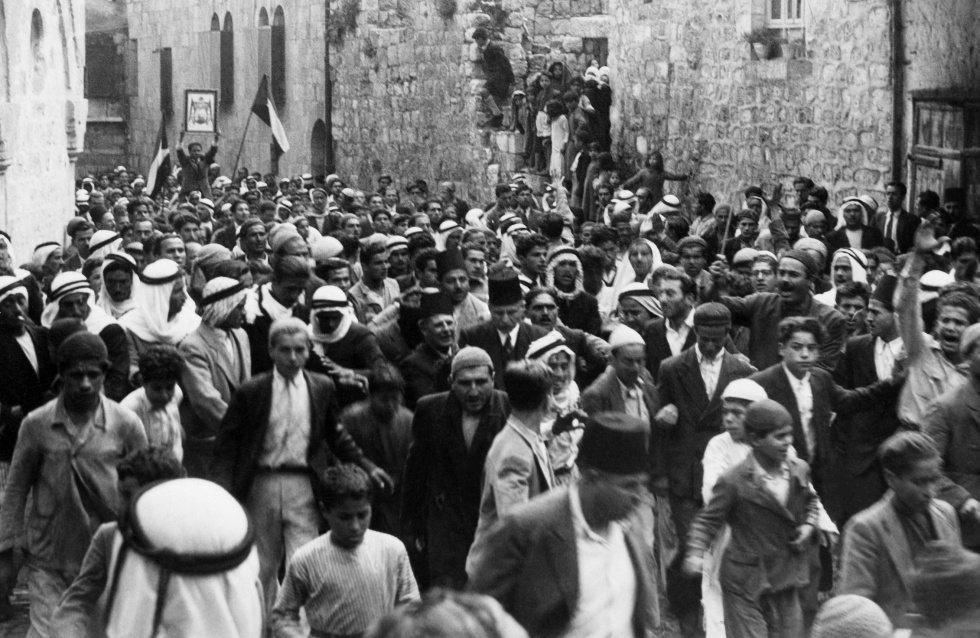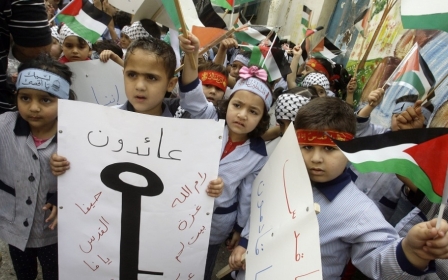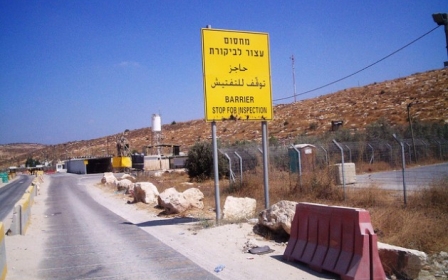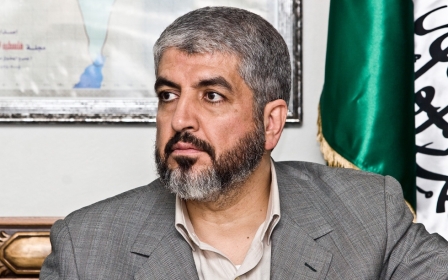The Nakba will end when Palestinian leaders learn from history

For almost one hundred years of Palestinian resistance to the ongoing ethnic cleansing of Palestine, various consecutive Palestinian leaderships have placed their trust in diplomacy and have looked with bedazzled eyes at powerful western nations, the international community and the Arab League to deliver them from the occupation and to bring a just resolution to the conflict. This is astounding when one considers that Israel, the reason behind the Palestinian people’s dispossession, is a western colonial project that would not exist if not for the support of those same western powerful states and the complicity of the international community.
When Palestine fell under British rule, the first Jewish military unit entered Jerusalem in 1918 alongside General Allenby, leader of the British expedition to conquer the region. This was one year after the British cabinet pledged to establish a home for the Jews in Palestine in what became known as the Balfour Declaration. Throughout its mandate years, Britain gave significant logistical support to make this promise a reality; increasing Jewish immigration, allowing Jewish militias to have an army and passing literally hundreds of laws that would permit Jews to take over Palestinian land. By the early 1920s, Palestinians started to realize that Zionists were bent on taking over their country, so they began to organize resistance on the ground, mostly in the form of civil disobedience including strikes and demonstrations, while their political leadership embarked on a strategy, which till this day they seem to consistently apply: they sent delegations to London to discuss the Palestinian question. They sought help from their Arab brethren and attempted to keep friendly ties with Britain while trying to fight against the growing violence and aggressiveness of the Zionist forces.
Palestinian leaders continued their failed attempts at diplomacy while Britain continued to increase Jewish immigration and to allow for the militarization of the violent Zionist militias, which increasingly used terrorist tactics to scare Palestinians into leaving their towns and villages. Meanwhile, Britain strictly monitored and contained Palestinian resistance by brutally crushing all forms of rebellion, even using lethal force killing and maiming many. Yet even during these crucial times, the Palestinian leadership still believed they could gain more through negotiations - they felt that a revolution was not the answer. In fact, they believed that their people weren’t strong enough to resist on the ground – something we still hear the leadership say about resistance today in spite of the incredible persistence of peaceful resistance in places like Niileen and Bileen which build on powerful historical tradition of Palestinian perseverance or “somud”.
Despite the heavy handed response of the British forces, and a testimony to the strength of the Palestinian people, the civil unrest continued and in 1936 there were massive strikes across Palestine. The British authorities began arresting anyone suspected of being responsible while destroying their homes in order to end the revolt. They also asked their allies, the puppet regimes recently installed in the Arab world to intervene. The Arab leaders advised the Palestinians to end their strikes and protests in order to give Britain a chance to prove its ‘good intentions’.
The British forces spared no effort to continue to crush dissent and disarm the Palestinians. They constantly searched for weapons and destroyed the homes of those who had even just one bullet. At the same time, they allowed the Zionists to gather arms and gave them full training on how to use their weapons. The terrorist Haganah militia and the British forces worked together to raid and murder Palestinians who were suspected of organizing the rebellion. From 1939 onwards there was no effective Palestinian resistance and that’s what allowed the Nakba of 1948 to happen.
Stay informed with MEE's newsletters
Sign up to get the latest alerts, insights and analysis, starting with Turkey Unpacked
The battle was lost by the Palestinians not in 1948 but in the late 1930s when the absolute brutality of the British forces and the idiotic mind numbing decisions of the Palestinian and Arab leadership delivered Palestine to the Zionist movement with no resistance and no leadership, on a silver platter. The rest is not only history, but history stuck in a loop.
Last year ended with the Palestinian Authority warning that the window is now closing on the two-state solution, but so did the year before it, and so many other years before. Our top Palestinian negotiator Saeb Erekat proudly admits he has resigned eight times, yet he continues the tradition of failed negotiations. The Palestinian leaderships, the Palestinian Authority in the West Bank, the Hamas government in Gaza, and the aging Palestine Liberation Organization, all continue to ignore the immense power and strength of the Palestinian people and the goodwill of an ever growing international Palestinian solidarity movement across the world.
In 2005, having had enough of the cycle of failed negotiations and inspired by the South African movement to end apartheid, Palestinian civil society began a non-violent grassroots movement based on international law and the universal declarations of human rights. They called on the people of the world to take action where their governments have failed and to implement a policy of boycotts divestments and sanctions against Israel until it ends its occupation of Palestinian land, including East Jerusalem, fulfills its obligations under international law toward the Palestinian refugees and grants full equality to the Palestinian citizens of the state of Israel. This call was endorsed by 170 Palestinian political parties, organizations, trade unions and movements representing Palestinians in the Occupied Territory, inside Israel’s 1948 boundaries, as well as in the diaspora, making the boycotts divestments and sanctions movement against Israel, known as the BDS, a movement that represents the voice of the majority of Palestinian civil society.
The time is now passed for the Palestinian leadership to break their cycle of dependency on the failed strategy of endless diplomacy and negotiations and to start supporting their people’s popular forms of resistance including the calls for a full and comprehensive boycott of Israel. They must learn from the history of the past 100 years, so the day may come when we can finally begin to celebrate our freedom rather than continue to commemorate our dispossession.
- Samah Sabawi is a playwright, poet, political analyst and human rights advocate. She has written and produced the critically acclaimed plays Cries from the Land and Three Wishes as well as having co-authored the book Journey to Peace in Palestine. She is also Policy Adviser to Al-Shabaka, the Palestinian policy network.
The views expressed in this article belong to the author and do not necessarily reflect the editorial policy of Middle East Eye.
Photo credit: A picture dated before 1937 during the British Mandate in Palestine shows Arabs demonstrating in the Old City of Jerusalem against the Jewish immigration to Palestine. (AFP)
Middle East Eye delivers independent and unrivalled coverage and analysis of the Middle East, North Africa and beyond. To learn more about republishing this content and the associated fees, please fill out this form. More about MEE can be found here.





